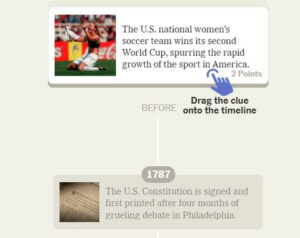It’s that time of year again, a time with so much promise as people look forward to a fresh start and new beginnings. The start of a new year is a natural time to reflect on the past and plan for the future, and many people see the new year as a chance to start fresh and make positive changes in their lives. However, despite New Year’s resolutions being the traditional method of starting afresh, there is a more effective method that I’d like you to consider.
For many, making a New Year’s resolution can be a way to set goals and work towards improving oneself and one’s life. It can be a way to take control of your future and make positive changes that can lead to a better life.
Some common reasons for making New Year’s resolutions include:
- Improve one’s health and well-being, such as exercising more, getting more sleep, eating healthier, or quitting caffeine.
- Achieve personal or professional goals, such as improving academic grades, learning a new skill, or saving money.
- Make positive changes in one’s life, such as volunteering in the community, spending more time with loved ones, or trying new experiences.
- Build better habits or break bad ones, such as waking up earlier, being more organized, or procrastinating less.
- Reduce stress and improve mental health, such as practicing mindfulness, taking breaks, or seeking support when needed.
However, New Year’s resolutions are a notoriously poor method of self-improvement. This article suggests that the failure rate for New Year’s resolutions is about 80 percent, with most individuals losing their resolve by mid-February.
There are many reasons why New Year’s resolutions can fail, including:
- Setting unrealistic goals that are too ambitious or not specific.
- Lack of motivation or commitment.
- Not making a plan.
- Lacking support from friends and family.
- Not being flexible.
10 years ago, I discovered the #OneWord concept that switched my thinking away from setting a New Year’s resolution and towards something much more straightforward, forgiving, and effective for me. So, as in years past, I will be choosing a #OneWord to guide me through the year ahead, and I’ll share with you the reasons why you should choose a #OneWord too.
Resolution. It’s a strong, demanding word. It screams, I must! It’s a demand that we place upon ourselves, and there is no room for failure. Yet, failure is pretty much inevitable. Most of us simply don’t respond to this word, and when we don’t, we feel disappointed in ourselves–even ashamed.
INC. MAGAZINE
The theory behind the idea of identifying a single guiding word is that it points us toward the type of person we want to become. And unlike a resolution, a single word can’t be broken. I visualize this as a word that sits on my shoulder and gently nudges me towards a more improved version of myself. In this article by Nicole Dean, she suggests that you decide what one thing, if applied to every area of your life, will have the most impact and bring the most positive changes into your life. Then you work to apply that word to every area, situation, and task in which you find yourself. I have had much success with the #OneWord concept and will reveal my chosen word for 2024 later in this post.
So, how does one identify the #OneWord to guide them over the coming year? You could be inspired by the choices of others. Last year, over 800 people shared their #OneWord with me, and you might be inspired by this top 10 list from 2023. The words confidence, focus, perseverance, discipline, passion, love, courage, strength, adventure, and hope all relate to aspirations for personal growth, resilience, and a deeper connection with ourselves and the world around us.

If you are still looking for inspiration, you could take this simple quiz to help with selecting your word. After responding to a few prompts, you will be provided with ideas to help narrow down your final selection. Here are the words that I have selected since discovering the #OneWord concept. Some have been more successful than others, but ALL have moved me closer to the person that I want to become.

Once I have chosen my word, I put it into action in a number of ways. I’ve blogged many times about my #OneWord experiences and I’ll continue to share my word with readers, my students, and friends and family. I know that if I share my word widely, then I have to commit to it. Plus I’ll also have the benefit of others nudging me towards a better version of myself.
One great tip to ensure success is to keep your word prominent in your daily life. Some people turn their word into a phone wallpaper, or frame it and hang it on their wall. My reading and podcast listening will revolve around my word as I discover the ways in which it can be interpreted and applied to my life. Additionally, I like to get creative and pin quotes and artwork pertaining to my word above my desk, also adding some to my iWatch face. Keeping your word prominent will inspire you and help inform the choices you make.
Need yet more inspiration? Tara Parker-Pope of the Washington Post recommends that you consider your values before selecting your #OneWord.
Value-oriented words (such as family, love, kindness, compassion, friendship, optimism, fitness, leadership) are a good place to start when choosing a word. Browse this word list of core values for inspiration.

If you share your #OneWord2024 with me via this google form, using the power of add-ons, you will be immediately sent some images like the one above, but with your #OneWord2024 embedded in it! You can use the images to save and share with others. *This might not work if your email address filters out emails from outside of your network.*
Get your personalized #OneWord image here.
And so to my chosen word for the year. The theme of CONNECTION and the role that CONNECTIONS play in improving our lives. Firstly, Susan Pinker’s TED talk “The Secret to Living Longer May Be Your Social Life.” discussed the importance of social CONNECTIONS and face-to-face interactions in promoting longevity and overall well-being. Investing in our social CONNECTIONS can contribute significantly to a longer and healthier life. I can continue to invest in my relationships with those around me, including family, friends, and those at work.
I’m also fascinated by the ideas behind this article, in which a collection of brilliant sporting minds gathered to create a ‘brains trust for rebel ideas’. Referred to as a ‘knowledge platform CONNECTING people at the highest levels of sport,’ this group shares transformative ideas. To avoid ‘groupthink,’ experts come from a variety of different fields. I definitely have my own version of a brains trust, and I know who to turn to when I need to bounce ideas around or a fresh pair of ears and an incredible brain to help me formulate my thoughts. This year, I will work harder at cultivating my own knowledge platform.
A feeling of CONNECTEDNESS is crucial for my students, and this is a theme that has become more prominent in my classroom in recent years. school CONNECTEDNESS during adolescence has been linked to positive health outcomes, including reductions in emotional distress, symptoms of poor mental health, and suicidal ideation; health risk behaviors (e.g., marijuana and prescription drug misuse); and negative experiences (e.g., sexual violence victimization), and multiple of these protective effects have been found to last into adulthood. In addition, school CONNECTEDNESS has been identified as a protective factor for adolescents facing stress, adversity, or marginalization. I need to work hard to develop and maintain CONNECTIONS with my students and ensure they know which CONNECTIONS in the building and community can provide them with the support they need.
Finally, I’m reading ‘The Career Arts‘ by Ben Wildavsky, a book identifying the blend of education and networking needed to support real-world career aspirations. Although I’m only just exploring the author’s ideas, I’m fascinated by what he refers to as the role of social capital and how it is critical to future success, particularly for disadvantaged students. Social capital is all about CONNECTIONS. It refers to the social networks, relationships, and shared values that contribute to social cohesion and cooperation within a community. Wildavsky emphasizes fostering CONNECTIONS and collaboration within educational institutions to enhance the learning experience and improve student outcomes. I want to learn more about this in 2024.
Now it’s your turn. What #OneWord will YOU choose to guide you in the year ahead?
If you liked this post you’ll also appreciate:
From Challenges to Triumphs: 10 Year-End Reflection Prompts AND 10 Prompts to Help Look Ahead to Next Year.
How to Improve Your Life in 2024 According to Science via BBC
My #OneWord for 2024 – SOAR! by Dr. Neil Gupta
On Being Brave, Kind and Proud by Andy Milne
If you’re looking for reading inspiration for the year ahead, you should check out the titles chosen as our Books of the Month!
Here are a few questions for you to consider this week:
Q1: What steps have you already taken towards embracing your #oneword2024? #slowchathealth
Q2: Which areas of your life will be affected by your #oneword2024? #slowchathealth
Q3: With whom will you share your #oneword2024? #slowchathealth
Q4: How will you know if your #oneword2024 was a success? #slowchathealth
#Claim #Greatness #OneWord #Define #Year




More Stories
Microbiology – Campylobacter Jejuni
COVID Therapeutics
MSRA: Complete Guide 2024